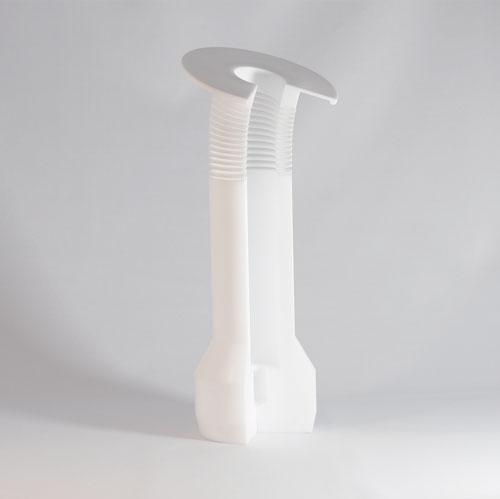PTFE in the food industry - you can't get more hygienic.
PTFE fulfills the demands of the food industry.
Food is a highly sensitive issue.
PTFE is a plastic whose combination of properties is unique and which distinguishes this material for use in applications with high requirements. The universal resistance to almost all chemicals enables the permanent use of PTFE for repeated contact with food.
The fact that PTFE does not absorb water or any other liquid enables the quick change of different media without cross-contamination. In addition, static and dynamic seals made of PTFE solve many problems that would often not be satisfactory with other materials. The wide range of use at temperatures from -260 ° C to + 300 ° C enables use in the low-temperature and frozen goods area as well as in applications in which food is cooked, baked or roasted. The use in contact with microwaves is also completely without problems. In addition, PTFE can be cleaned and sterilized using all common methods, except high-energy radiation. Embrittlement or aging does not occur with PTFE.


Important:
TFE can be cleaned and sterilized using all common method, except high-energy radiation. Embrittlement or aging does not occur with PTFE.
PTFE and some PTFE compounds are fully compliant with the current FDA and EU regulations for the area of food production or processing.
An excellent product property of PTFE is the non-stick behaviour. This is an enormous advantage, especially when processing dough. PTFE is ideal for coating or as a material for the lining or lining of vessels and stirrers. PTFE is also often used as a covering for slideways at higher temperatures. Lubrication-free devices or compressors are preferably equipped with bearing and sealing elements made of a PTFE compound.
All materials that come into contact with foodstuff during production or processing, depending on the area of use, must be in compliance with the applicable regulations and approvals so that the health of people is not adversely affected by the effects of substances harmful to health.
In the United States, the FDA (Food and Drug Administration), which is assigned to the US federal government, was founded in 1927 in order to create corresponding requirements and to check compliance with them. This authority issues guidelines and regulations that have become the worldwide standard for the production of food and medicines in recent years. The EU has also issued a number of binding guidelines and regulations for the EU member states.
A special principle of these regulations is that the “distributor” is ultimately responsible and liable for compliance with the regulations and guidelines. This means that for example the use of a seal in a device or machine must already comply with the approval regulation.
As a PTFE specialist, we are approved and certified for the food industry.
In order that the “seller or distributor” does not have to carry out all the examination procedures himself, he can rely on upstream suppliers who have obtained approval for the used material and are therefore entitled to issue a corresponding certificate for the delivery of the material. This approval does not only include compliance with material quality, but also the manufacturing or processing process.